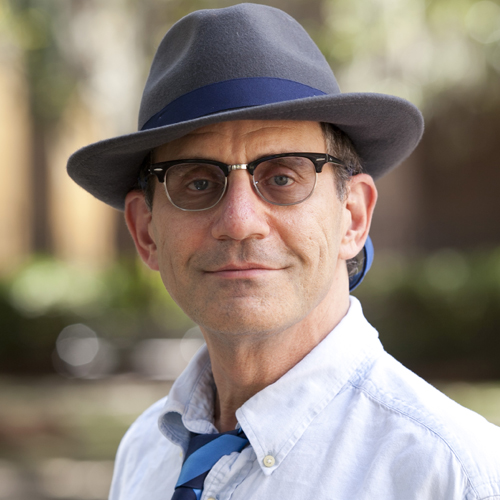
Richard Bodek
Professor of History, Director of History MA Program
Richard Bodek’s research and teaching interests roam widely from science fiction to detective fiction to popular culture to radical politics to violence. He has taught courses in all of these areas. He has also written about all of them.
For example, his work as a labor historian is shown in Proletarian Performance in Weimar Berlin: Agitprop, Chorus, and Brecht, which argues that many works of Weimar modernism emerged from proletarian forms and a proletarian aesthetic sphere.
His interest in intellectual history prompted his co-edited volume, The Fruits of Exile: Central European Intellectual Immigration to America in the Age of Fascism.
His continuing interest in cultural anthropology emerges in the co-edited volume, Maroonage/Marronage: Maroons in Culture, History, and Society.
Finally, his love of the ‘Golden Twenties’ prompted his edited translation of Claire Bergmann’s 1932 German novel (banned by the Nazis), Was wird aus deinen Kindern, Pitt? (What Will Become of the Children?).
At present, he is at work on a history of murder in Occupied Germany.
Education
Ph.D. The University of Michigan, 1990
B.A. The Johns Hopkins University, 1982
Research Interests
Crime
Working-class and Popular Culture
Science Fiction
Weimar Culture
Radical Politics
Courses Taught
Berlin in the Golden Twenties
Modern German Cultural and Intellectual History
History of the Soviet Union
Nazi Germany in History and Pop Culture
European Labor and the Left
Honors and Awards
Dr. Bodek has received grants from the Fulbright Foundation, National Endowment for the Humanities, Social Science Research Council, and the German Academic Exchange Service.
Publications
Recent articles include:
“Lest Darkness Fall: Castaways in Time and Space in Popular Turn-of-the-Century Fiction,” Richard Bodek and Joseph Kelly (eds.) Maroonage/Marronage: Maroons in Culture, History, and Society (University Press of Mississippi, Forthcoming).
“Pulp Fiction and American Identity: Intertextuality, Technology, Ethnicity, and Violence in Argosy, 1937,” Tim Nieguth, (ed.), Everyday Nationalism in North America (McGill-Queen's University Press, Forthcoming).
“Reading Non-sequentially: Teaching Great Books in Conversation With One Another,” Selected Papers from the Nineteenth Annual Conference of the Association for Core Texts and Courses (Forthcoming).
“Crime and Criminality in Berlin: An Assessment of the Historical Literature,” Journal of Urban History (March, 2019).
“Max Horkheimer and ‘The Jews and Europe’”: A Re-Evaluation,” Richard Bodek and Simon Lewis (eds.) The Fruits of Exile, Central European Intellectual Emigration to America in the Age of Fascism (University of South Carolina Press, 2010).
“A Political Tevye? Yiddish Literature and the Novels of Stefan Heym,” Benjamin Lapp et al. (eds.) Jewish Identity and Jewish Writing in Germany and Austria Today. (Berghahn Books, 2008).
“Agitprop,” Jay Winter and John Merriman, (eds.) Encyclopedia of Europe 1914-2004 (Scribners, 2006).